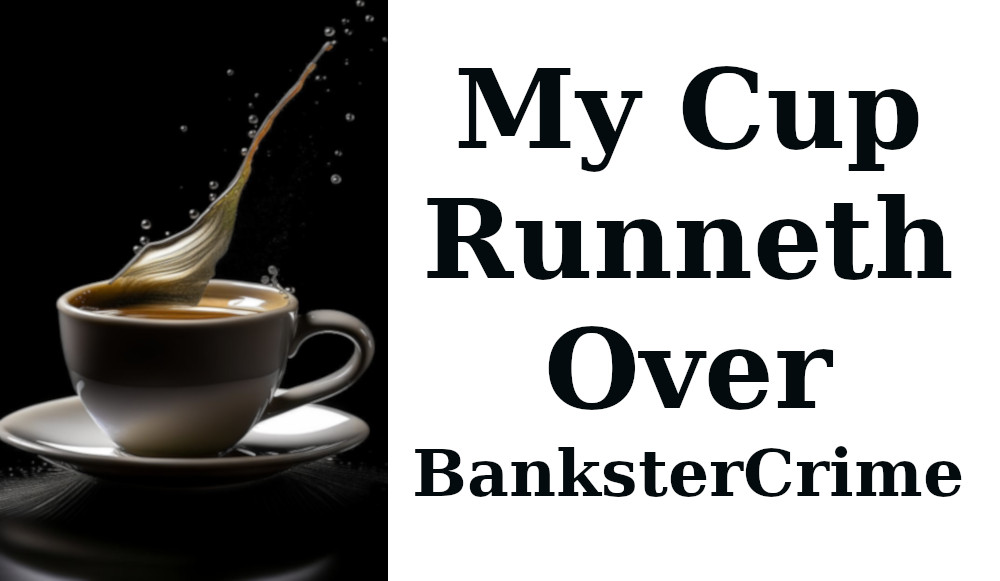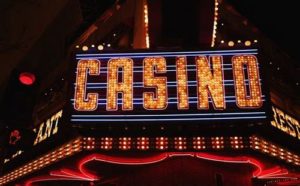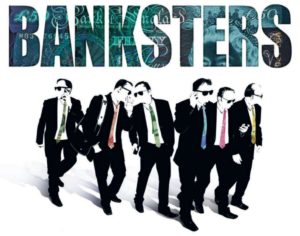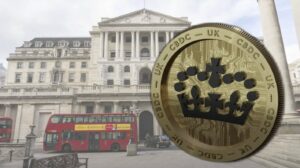
BanksterCrime:
By Pam Martens and Russ Martens,
Robert Kaplan
The swampiest trading house on Wall Street, Goldman Sachs, issued a press release on Tuesday which was revolting – even to Wall Street veterans who are familiar with its scandalous history. (See Related Articles below.)
The press release stated that “Rob Kaplan will rejoin the firm as Vice Chairman of Goldman Sachs and a member of the Management Committee. He will be a member of the Executive Office and will be based in Dallas.”
Robert (Rob) Kaplan is the man who scandalized the Dallas Fed and the Federal Reserve (the central bank of the United States) by flagrantly serving his own trading interests and violating financial reporting rules while trading like a hedge fund kingpin in S&P 500 futures for his own account during a declared National Emergency in 2020 (from the COVID-19 pandemic) while he was President of the Dallas Fed (one of the 12 regional Federal Reserve Banks).
In 2020, Kaplan was a voting member of the Federal Open Market Committee (FOMC) and had access to non-public insider information, which included information on emergency actions the Fed was taking or planned to take to stem the financial wreckage from the pandemic.
But instead of behaving like a responsible Fed insider with laser-focus on the good of the country, Kaplan was making $1 million-plus trades in and out of S&P 500 futures for his own account. And instead of reporting the date of each buy and each sell in these speculative contracts as his financial disclosure form required — and which every other Fed Bank President did in 2020 — Kaplan simply wrote the word “multiple.” (In fact, Kaplan evaded the required reporting of specific dates for each sale and each purchase of a security for the entire five years he filed his financial disclosure forms at the Dallas Fed. See Kaplan’s financial disclosure forms from 2015 through 2020 here.)
Kaplan was a sophisticated Wall Street veteran who would have known how to turn inside information at the Fed into highly profitable trades. Kaplan had worked previously at Goldman Sachs for 22 years, rising to the rank of Vice Chairman. He would have certainly understood that the type of trading he was doing while employed as President of the Dallas Fed could subject him to an investigation for insider trading. (Goldman Sachs has declined repeatedly to tell Wall Street On Parade if Kaplan did his trading at Goldman Sachs. The fact that Kaplan lists proprietary products from Goldman Sachs as “GS” on his financial disclosure forms that he filed while employed at the Dallas Fed suggests that he did at least some of his trading through Goldman Sachs.)
S&P 500 futures trade almost around the clock during weekdays. This gives a nimble trader with inside information the potential to make a fortune outside of stock exchange hours, which run from 9:30 a.m. to 4:00 p.m. weekdays.
After Kaplan’s trading binge made headlines, he announced his “retirement” from the Dallas Fed on September 27, 2021. The Dallas Fed later held a Town Hall to express how sincere it was in looking for a local leader to take the helm at the Dallas Fed. Instead – wait for it – it replaced Kaplan with Lorie Logan, the head of trading desks at the New York Fed. (You can’t make this stuff up.)
In addition to having access to inside information from the Federal Reserve in 2020, Kaplan gave a total of 68 interviews with the press in 2020, an uncanny number for a man also trading in and out of S&P 500 futures. In some of his broadcast media appearances, Kaplan made market-moving statements.
During six days in May of 2020, Kaplan twice predicted that unemployment was going to surge to 20 percent. That’s an apocalyptic call that could have benefited short sellers. According to the Congressional Research Service, the maximum unemployment rate in 2020 topped out at 14.8 percent in April.
Kaplan first made the 20 percent unemployment prediction on Fox Business with Maria Bartiromo, the cable TV show, on May 1, 2020. When the interview started, around 8:34 a.m. ET, Dow futures were down 450 points. By the time Kaplan finished speaking, Dow futures had dropped another 10 points. The Dow closed the day down 622 points. (You can watch the program here.) In addition to the 20 percent unemployment prediction, Kaplan also described the economic outlook in the interview as an “historic contraction,” “very severe,” and noted that the consumer (which represents two-thirds of GDP growth in the U.S.) had “suffered a body blow.”
Despite repeated requests from Wall Street On Parade, the Dallas Fed refused to say if Kaplan was shorting the market in 2020 during a declared National Emergency. (Shorting means to place a bearish bet that the market or a security will fall in value.)
Kaplan was also trading in and out of oil stocks in 2020, including shares of Chevron, Marathon Petroleum, Occidental Petroleum and Valero Energy. According to Kaplan’s financial disclosure form for 2020, he made “multiple” trades in each of these oil stocks in sums of “over $1 million.”
On May 28, 2020, Kaplan gave an interview to Reuters news wire which generated a headline that he was predicting “a global oil glut lasting well into 2021.” He also made the bearish comment in the interview that many smaller firms and those with lots of debt may not survive.
West Texas Intermediate (WTI), the U.S. domestic crude oil that trades, had collapsed from a price of $60 a barrel at the beginning of 2020 to a range of $30 at the time of the Reuters’ interview with Kaplan. Calling for a “global oil glut lasting well into 2021” was not a bullish call for the oil fields in Texas. WTI actually bounced back to its $60 handle in early April of 2021.
Multiple watchdog groups called for investigations by the Securities and Exchange Commission and/or the U.S. Department of Justice into Kaplan’s trading and that of other officials at the Fed. Instead, the Fed referred the investigation on October 4, 2021 to the Federal Reserve Board’s own Inspector General, Mark Bialek, who is appointed by the Chair of the Fed, reports to the Fed Board (including the Chair) and can be fired by a two-thirds vote of the Fed Board.
Bialek was appointed to his position by Fed Chair Ben Bernanke in 2011, just four days after an explosive audit of the Fed’s emergency bailout programs during and after the 2008 financial crisis was released by the Government Accountability Office (GAO). That audit showed that the Fed had secretly funneled more than $16 trillion in cumulative loans to the megabanks on Wall Street and their foreign derivative counterparties from December 2007 to at least July of 2010. A statement from Senator Bernie Sanders’ office at the time included the following:
“The Fed outsourced virtually all of the operations of their emergency lending programs to private contractors like JP Morgan Chase, Morgan Stanley, and Wells Fargo. The same firms also received trillions of dollars in Fed loans at near-zero interest rates. Altogether some two-thirds of the contracts that the Fed awarded to manage its emergency lending programs were no-bid contracts. Morgan Stanley was given the largest no-bid contract worth $108.4 million to help manage the Fed bailout of AIG.”
Bialek appeared as a witness at the May 17, 2023 Senate Banking Subcommittee on Economic Policy hearing. Senator Elizabeth Warren, Chair of the Subcommittee, showed her exasperation with Bialek’s stonewalling on the Fed’s trading scandal investigation, stating as follows:
“You have had a year and a half. You did not call out the trades that we can see. Let us just put it this way, this is not strong oversight. In fact, it is not even competent oversight. It looks like, to anyone in the public, that you gave your boss a free pass, and that’s just not gonna cut it here. And even today, a year and a half later, the Fed continues to stonewall Congress, stonewall the public, on the underlying information about these trades. This is not acceptable. This is why we are pushing for an independent IG.”
After more than two years, Bialek finally released a report on its findings regarding Kaplan’s trading on January 24 of this year. The report stated that “we did not find that his trading activities violated laws, rules, regulations, or policies related to trading activities as investigated by our office.”
But the Inspector General does not appear to have investigated anything that a legitimate insider trading investigation would have encompassed. It did not investigate if Kaplan was shorting the market with his $1 million plus trades in and out of S&P 500 futures contracts during a declared National Emergency; it did not investigate his market-moving statements on TV; it did not investigate how big ticket trading by a Fed insider got past the compliance department of the brokerage firm Kaplan was using to transact his trades, which may have been the scandal-ridden Goldman Sachs; it did not investigate if that brokerage firm was cloning Kaplan’s trades (because he was a Fed insider) for its own profit or that of its clients.
In fact, the Fed Inspector General didn’t do anything that a veteran investigator at the Securities and Exchange Commission would have done. Its report is also silent on whether it made a referral to the SEC or the Justice Department.
What the Inspector General did do was to sit on this investigation for more than two years while media attention died away and then deliver a report so hopelessly inept that it provided the long missing dates that Kaplan traded but not the essential information as to whether the trades were purchases or sales, thus preventing the public from seeing if Kaplan was shorting the market.
Notwithstanding the whitewash from Bialek that said Kaplan had not violated any rules, we found the following sentence in 11 of the 12 regional Federal Reserve Banks’ codes of conduct: (The Atlanta Fed words the statement differently but with the same overall meaning.)
“Each employee has a responsibility to the Bank and to the System to avoid conduct which places private gain above his or her duties to the Bank, which gives rise to an actual or apparent conflict of interest, or which might result in a question being raised regarding the independence of the employee’s judgment or the employee’s ability to perform the duties of his or her position satisfactorily.”
No reasonable person or competent investigator could find that Kaplan did not violate the above mandate when he engaged in $1 million plus trades in S&P 500 futures for his personal account when the country was in crisis and under a declared National Emergency.

Slim sized Perfume Oils are perfect to take with you in your hand bag, gym bag, or for traveling. Roll a small amount on your pulse points. These are very concentrated, absorb quickly, and last a long time.
Our fragrances do not have Phthalates, alcohol, parabens, or dyes!
Warm Sandalwood is a warm, rich, and woodsy scent. The colors are warm and rich with brown, gold, and white.
Each Perfume Oil bottle will contain approximately 0.3 ounces and be approximately 3.25 inches tall.
Allergen: Our products contain oil from tree nuts. Please test on a small area of skin prior to use and stop using if irritation occurs. Do not use if you are pregnant. Do not use on infants under the age of 24 months. Do not get in your eyes. GoShopping

![]()






